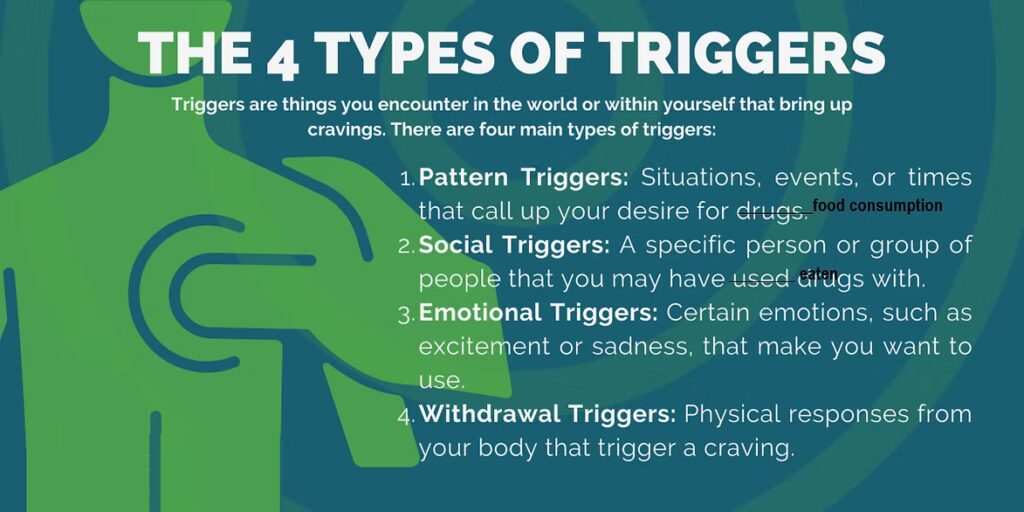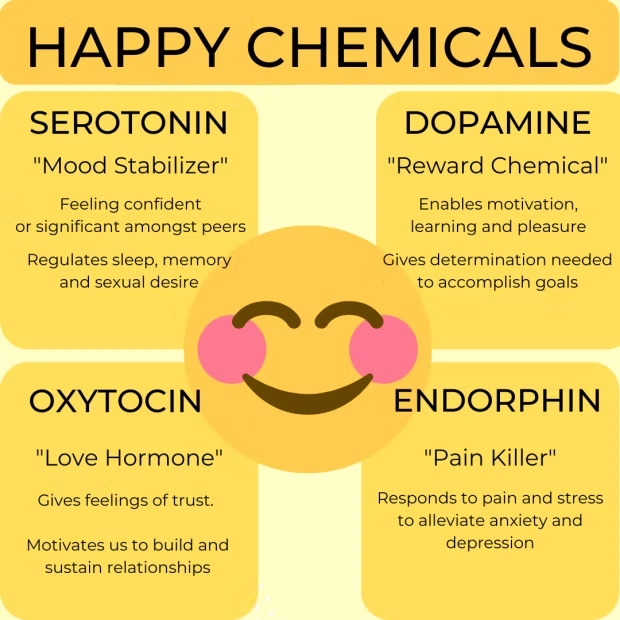What Are Cravings?
Cravings are a key part of addiction awareness and recovery. They are intense feelings that make you want to use the substance again. They are driven by the desire to experience the same positive effects that you had before. However, cravings are more complex than they seem.
A craving is a combination of a mental and emotional urge, as well as a physical demand from your brain chemistry. Substances affect your brain by releasing chemicals that make you feel happy and rewarded. When you stop using those substances, your brain produces cravings to make you seek that reward again in the same unhealthy way.
How Long Do Cravings Last?
Understanding and Managing Your Triggers

What are Triggers?
If you struggle with addiction, you probably know what triggers are. They are the things that make you crave the substance or behavior you are addicted to — food, alcohol, drugs, nicotine, gambling, or something else. Triggers can be external or internal. External triggers are the people, places, situations, or objects that remind you of your addiction. Internal triggers are the thoughts, feelings, or sensations that make you want to use.
Triggers can be very powerful and hard to resist. That is why it is important to have a strategy for dealing with them.
- One strategy is to avoid your triggers as much as possible.
- Sometimes, however, you will encounter them unexpectedly or unavoidably. In those cases, you need a plan for how to cope with your triggers without giving in to them.
Some coping strategies include:
- Distract yourself with something positive and healthy, such as listening to music, reading a book, going for a walk, or calling a friend.
- Remind yourself of the benefits of staying abstinent, and why you want to abstain from the addictive behavior.
- Use positive self-talk to encourage yourself and challenge any negative thoughts that might tempt you to use.
- Practice relaxation techniques, such as deep breathing, meditation, or yoga, to calm yourself and reduce stress.
- Seek support from someone who understands what you are going through, such as a therapist, a sponsor, a family member, or a friend.
- Celebrate your progress.
Triggers are inevitable when you are recovering from addiction. But they don’t have to control you. By understanding your triggers and having a plan for how to cope with them, you can increase your chances of staying sober and achieving your recovery goals.
Trigger Foods
Food Addicts can recognize which foods have triggered them to lose control over their food consumption, quantities, choices, and timing of their eating episodes, if they have progressed in the disease.
Individually identified trigger foods cause a person to:
- Lose control over their consumption.
- Lose control over their eating.
- Experience intense cravings, binge, or compulsively overeat.
- Experience impaired control and spend a lot of time thinking about, engaging in, and recovering from food consumption.
- Experience social impairment, with lowered engagement in physical, mental, and social aspects of a healthy quality of life.
- Engage in risky use that leads to depression, increased risk of diabetes, hypertension, cardiovascular disease & some cancers.
- Experience persistent cravings and negative affects when attempting to regulate food consumption
Individually identified trigger foods are different for each person, depending on their personal history, physiology, and psychological factors.
Often people are triggered by fast foods, sweet foods, salty foods, junk foods, baked foods, and foods served at celebrations.
Some common examples of trigger substances are:
- sugar
- flour
- chocolate
- pizza
- chips
- ice cream
Food Addicts need to abstain from their individually identified trigger foods because when they consume them, they act like drugs in their brains and bodies, activating the reward and pleasure centers and releasing neurotransmitters such as serotonin, dopamine, oxytocin, and endorphins.

Recovery from food addiction
- Observe what foods trigger your uncontrollable food consumption behavior.
- Make a list of your individually identified trigger foods.
- Abstain from your individually identified trigger foods to begin freeing your body from cravings. By eliminating the foods that cause loss of control over food consumption, food addicts can regain their sanity, health, and freedom. They can also learn to cope with their emotions and stress in healthier ways, without using food as a drug or substance.
- Go through withdrawal from those individually identified trigger foods that acted like substances affecting your brain chemistry and physical health.
- Work with a Food Addiction Informed professional to create a customized food plan that includes healthy foods in appropriate quantities, consumed in variety, and timed to energize your brain and nourish your body.
- Join a peer support group to learn and practice alternative ways of dealing with life's challenges. Such groups can support you to live the life you want rather than struggling with adverse health complications resulting from addiction to food as a substance use disorder.
- Develop a daily practice of self-care that includes meal planning, scheduling time for yourself, exercise, and maintenance.
- Create a support network and environmental safeguards to prepare your abstinent meals, protect your recovery, plan for emergencies, and prevent relapse.
